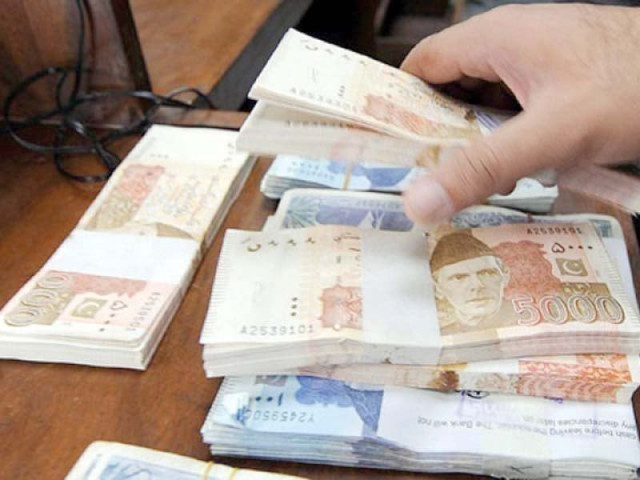Bank deposits grow 16.5% in one year
Most businesses, individuals opted to save money amid Covid outbreak

Total deposits in banks grew 16.5% over the last one year to Rs17.08 trillion in January 2021, as a majority of businesses and households opted to avoid non-essential spending and saved a maximum amount to fight unforeseen challenges during the Covid-19 pandemic.
Bank deposits had stood at Rs14.67 trillion at the end of January 2020, the State Bank of Pakistan (SBP) reported.
“A large number of businesses and households did not make unnecessary expenditures during the uncertain times of Covid-19.
They opted to save money and park the savings in banks. This led to a rapid growth in deposits of banks,” Meezan Bank Product Development and Shariah Compliance Senior Executive Vice President Ahmed Ali Siddiqui told The Express Tribune. Businesses kept their expansion plans on hold and waited for the return of economic stability.
Besides, many non-essential businesses faced closure in the initial months of the pandemic.
Airlines are yet to become fully operational as well. Accordingly, such businesses did not spend more and parked their capital in banks, he said. Deposits have not only grown due to hefty savings, but also due to a huge amount of money printed during the tough times.
Besides, increase in remittances from overseas Pakistanis to around $22-23 billion (equivalent to Rs3.4-3.6 trillion) in the last one year (Jan-Dec 2020) also helped in boosting the bank deposits, it was learnt.
The government disbursed Rs1.2 trillion to small and medium-sized businesses and the needy in March 2020 to fight the pandemic.
Moreover, the central bank injected another Rs1.5 trillion into the system through different schemes to protect businesses, avoid layoffs and save individual borrowers from default on payments. A large part of the financing entered the banking system.
“A pick-up in financial transactions through digital channels over the last one year also helped in keeping a significant amount of deposits in the banking system, meaning transactions took place but the money did not go out of the banking system technically,” Siddiqui said.
The latest deposits worth Rs17.08 trillion were 4.5% less than the alltime high of Rs17.87 trillion recorded in December 2020, according to the central bank.
“The growth in deposits may slow down since Pakistan’s economy has largely reopened and businesses and households are gradually stepping up spending with the return to normalcy (following the rollout of vaccines),” the banker added.
He said the companies were seen making increased imports over the past couple of months.
This is well reflected in the current account balance in deficit in December 2020 compared to surplus in the prior five months (Jul-Nov 2020) when spending was mainly restricted to essential goods only.
Bank investments, lending Along with the deposits, the banks’ investments in the secured government debt securities like T-bills and Pakistan Investment Bonds (PIBs), and lending (advances) to the private sector also grew over the last one-year in January.
Both the number (investment and lending), however, stood slightly low in January compared to a historic high hit in the prior month of December.
The investment increased 36.5% (or by slightly over Rs3 trillion) to Rs11.42 trillion in January compared to Rs8.37 trillion in the same month of last year. The latest figure, however, stood almost 1% less (or Rs132 billion) compared to record high of Rs11.55 trillion in December 2020.
Similarly, credit to the private sector improved almost 4% (or by slightly over Rs300 billion) over the last one-year to Rs8.46 trillion in January compared to Rs8.16 trillion in the same month of the last year. The number, however, stood 0.34% (or around Rs30 billion) less than historic high of Rs8.49 trillion in December 2020.



















COMMENTS
Comments are moderated and generally will be posted if they are on-topic and not abusive.
For more information, please see our Comments FAQ